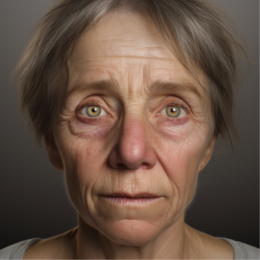How Does Trauma Affect Mental Health: A Comprehensive Guide

Types of Trauma
Physical Trauma
Physical trauma refers to injuries or bodily harm that can have lasting repercussions on one’s mental state. For instance, someone who has been in a severe accident may develop symptoms of depression. They may appear perfectly normal but struggle with persistent sadness, fatigue, and a lack of interest in life.
Emotional Trauma
Emotional trauma often stems from relational issues, such as abuse or neglect. It can be a significant factor in what causes depression. Emotional trauma can lead to a range of mental health issues, including anxiety, depression, and even personality disorders. The scars may not be visible, but they run deep, affecting one’s ability to form healthy relationships and cope with life’s challenges.
Psychological Trauma
Psychological trauma involves experiences that are mentally and emotionally harmful and distressing. These can include severe stress, emotional abuse, or witnessing a horrifying event. The impact can be so profound that it alters one’s perception of reality, leading to disorders like PTSD (Post-Traumatic Stress Disorder).
Facts and Statistics:
89.7% of people experience a traumatic event by age 75, with variations in the types of trauma experienced.
The Psychological Impact of Trauma
Short-Term Effects
Acute Stress Response
The acute stress response is your body’s immediate reaction to trauma. While this “fight or flight” response can be life-saving, it can also lead to a host of problems if the stressors persist, affecting both physical and mental health.
Shock and Denial
The initial stages of post-trauma often involve disbelief and emotional numbness. This is the mind’s way of coping with the immediate crisis. However, staying in this state for an extended period can lead to more severe mental health issues.

Long-Term Effects
Post-Traumatic Stress Disorder (PTSD)
PTSD is a mental health condition triggered by a terrifying event. Symptoms may include flashbacks, nightmares, and severe anxiety. Research shows that traumatic experiences are associated with both behavioral health and chronic physical health conditions, especially those traumatic events that occur during childhood.
Complex Post-Traumatic Stress Disorder (C-PTSD)
Unlike PTSD, which can stem from a single event, C-PTSD usually results from prolonged exposure to traumatic circumstances. This can lead to additional symptoms like emotional numbness and a distorted sense of self.
Other Psychological Disorders Linked to Trauma
Trauma can also lead to other mental health conditions like high-functioning depression, generalized anxiety disorder, and even substance abuse. Understanding what causes depression and other disorders often requires a deep dive into one’s traumatic experiences.
Facts and Statistics:
About 7-8% of the U.S. population will have PTSD at some point in their lives.
Neurobiological Aspects of Trauma
The Brain’s Response to Trauma
When trauma occurs, the brain goes into survival mode. This can lead to long-term changes in brain areas responsible for memory, emotion, and even physical health.
Changes in Neurotransmitter Levels
Trauma can alter the levels of neurotransmitters like serotonin and dopamine, which play a crucial role in mood regulation.
The HPA Axis and the Stress Response
The Hypothalamic-Pituitary-Adrenal (HPA) axis is a complex set of interactions between two parts of the brain and the adrenal glands. Trauma can disrupt the HPA axis, leading to issues like chronic fatigue, immune dysfunction, and mood disorders.
Facts and Statistics:
Research indicates that trauma can lead to a 10-20% reduction in the size of the hippocampus, an area of the brain responsible for memory and emotion.
Childhood Trauma and Its Lifelong Consequences
Adverse Childhood Experiences (ACEs) and Their Prevalence
Negative Childhood Experiences (ACEs) like abuse, neglect, and witnessing domestic violence can have a lasting impact on mental health. Studies have shown that adults with multiple ACEs are more likely to struggle with mental health issues, including high-functioning depression and anxiety.
The Link Between Childhood Trauma and Mental Health Issues in Adulthood
Childhood trauma doesn’t just go away when you become an adult. It can manifest in various ways, affecting your relationships, career, and overall well-being.
Resilience Factors and Protective Measures
While trauma can have a devastating impact, resilience factors like a robust support system, positive coping mechanisms, and professional help can mitigate its effects.
Facts and Statistics:
One in seven children has experienced child abuse and neglect in the past year, and this is likely an underestimate.
Quick Poll
Coping Mechanisms and Maladaptive Behaviors
Coping Strategies Following Trauma
Coping mechanisms can vary from person to person. Some may find solace in talking to friends and family, while others seek professional help. Mindfulness techniques, physical exercise, and creative outlets like writing or painting can also be effective coping strategies.
Substance Abuse and Self-Destructive Behaviors
Unfortunately, not all coping mechanisms are healthy. Substance abuse is often a maladaptive response to trauma, serving as a temporary escape from emotional pain. This can lead to a vicious cycle, exacerbating mental health issues.
Facts and Statistics:
Approximately 25% of individuals utilize maladaptive coping mechanisms like substance abuse following trauma.
Treatment and Healing
The Importance of Seeking Help
Ignoring the signs can lead to severe mental health conditions. Early intervention is crucial. Therapies like Cognitive Behavioral Therapy (CBT) and medications can manage symptoms and help in preventing suicide, which can be a severe issue among people with traumatic experiences.
Therapeutic Interventions
Various forms of therapy, such as trauma-focused CBT, EMDR (Eye Movement Desensitization and Reprocessing), and group therapy, can be effective in treating trauma-related disorders.
Support Networks and Community Resources
Community centers, online forums, and local NGOs often offer resources and support networks for trauma patients. Don’t underestimate the power of a robust support system.
Facts and Statistics:
Trauma-focused CBT is effective for treating PTSD, with 52% of patients no longer meeting the criteria for PTSD after treatment.
Conclusion
Trauma is a complex issue that requires a multi-faceted approach to treatment and healing. While the journey is undoubtedly challenging, understanding the psychological and neurobiological aspects of trauma can pave the way for recovery and a better quality of life.
PLEASE SHARE YOUR EXPERIENCE AND THE COMMENTS BELOW, SO WE CAN HELP EACH OTHER WITH THE KNOWLEDGE YOU HAVE GAINED.
References
- Trauma-Informed Care in Behavioral Health Services. Chapter 3: Understanding the Impact of Trauma. https://www.ncbi.nlm.nih.gov/books/NBK207191/
- SAMHSA. Trauma and Violence. https://www.samhsa.gov/trauma-violence
- Plymouth Psych Group. The Role That Trauma Can Play in Your Mental Health. https://www.plymouthpsychgroup.com/blog/the-role-that-trauma-can-play-in-your-mental-health





